Last Updated February 7, 2020
On January 13, 2020, Google announced in a tweet that they had launched what they called the “January 2020 Core update”. For the last two weeks, the team and I at MHC have been poring over data to try and determine which types of sites saw improvements or drops after this update. We had quite a few clients see beautiful Google organic traffic gains with this change. We also had a few that did not improve. We have analyzed those as well.
In this article, our goal is to share with you some of the quality improvements that we feel helped certain sites to improve with the January 2020 core update. While we don’t claim to know exactly what it is that Google changed, we have several theories.
We feel that all of the following, unpacked below, were important issues in this update:
- Affiliate sites that did not properly disclose their affiliate links may have been affected.
- Truly excellent content appears to have been rewarded.
- Several elements of trust, as outlined in the Quality Raters’ Guidelines (QRG) were possibly reassessed.
- Pet Health content may be held to a higher standard now.
- A lot of ultra-spammy content may have been deindexed.
Throughout this article you will find many references to the QRG. We have written extensively in the past about why we pay so much attention to this document. The following articles can help explain this further:
What can Google’s Updated QRG tell us about quality in 2019?
E-A-T confirmed by Google to be an important part of their algorithms
At MHC, we believe that if something is outlined in the QRG, it means that Google is either measuring this algorithmically, or they want to be able to measure it algorithmically. While the QRG are not an exact blueprint of Google’s ranking algorithms, they can tell us a lot about what types of things Google looks for in terms of quality in a website.
Affiliate sites
Google is not against affiliate links. The QRG mention that, “Without advertising and monetization, some webpages could not exist because it costs money to maintain a website and create high quality content.” They even say, “Ads may contribute to a good user experience.”
According to the QRG, affiliate links are considered a form of advertising.
The QRG also say that all advertising must be very clearly labelled as such:
Something that we noticed, while assessing sites that either improved with the January 2020 core update or declined, is that many of the sites that declined had affiliate links that were not clearly identified as such.
The QRG have a section that outlines some practices that could be considered deceptive. You do not want to have your content perceived as deceptive!
Product reviews that are written primarily to get users to click so that you can make affiliate revenue could be seen as deceiving users.
We don’t believe that most of you who are reading this article have this level of deception on your site. You’re not actively trying to trick users. An example, however, would be an article that lists the top ten hosting companies, and then highly recommends only those hosting companies that have high paying affiliate programs. In other words, your recommendations are only there because you get paid more for recommending them.
Let’s take this even further.
Some of the sites that dropped, were well written and did not seem to be overly deceptive. They often contained an affiliate disclosure at the top or bottom of each article. For example, at the top of the article, there was a line saying, “This article contains affiliate links. If you click on these and make a purchase, we will receive a small percentage of the sale.” This is pretty common to see on most pages containing affiliate links.
But, most readers will not have read your disclosures. If you contain a disclosure in your footer, they almost definitely have not read that. Think of how you search for information on the web. In most cases you likely skim the article, find the section that is relevant to you and then read that. So, let’s say you skimmed to the following part of an article about how to make chocolate cake:
When I make this recipe, I love to use this blender. It is the best one I’ve ever used.
That “blender” anchored link is a link to the blender’s sales page on Amazon. The link contains your affiliate ID.
Would a reader know that? But really, is that link an ad? Remember, the QRG tell the raters to consider affiliate links ads. This section is relevant here:
Update: If you run an affiliate site, you should definitely read the Advertising Standards Authority's information on affiliate marketing. These are good guidelines to follow. One thing that their post mentions is that it is not enough to simply contain a disclaimer at the top or bottom of your post: "A disclaimer of this nature at the bottom of such a post is unlikely to be sufficient because there is the potential that the links and any ‘directly connected’ claims would not be considered obviously identifiable as advertising at the time they are encountered by the reader."
Here are some examples of things that we noticed on affiliate sites that saw improvements in overall keyword rankings with this update:
- Plain text to make it clear that the user is clicking on a link to take them to a sales page. Example: When I make this recipe, I love to use this blender which you can buy on Amazon. It is the best one I’ve ever used. This would make it clear to a searcher that if they click on that link, they are heading to Amazon to potentially buy it. There is no deception there.
- Using an official widget from your affiliate partners. Some of the sites that used affiliate links, but still saw gains with this update had affiliate links that looked like this:
Users seeing this widget would be quite clear on the fact that they are being sent to Amazon to potentially buy a product.
- Labelling certain links as sponsored or ads, or even affiliate links. We didn’t see this in the sites we reviewed, but feel it could be acceptable in Google’s eyes. You could potentially do this with a script that causes text to pop up when hovered over, or by putting all of your affiliate links in one section labelled, “Sponsored”.
If you have read the above and you are thinking, “Ugh! If I start labelling my affiliate links as affiliate links, my readers are not going to ever want to click on them!”, then you are exactly the person for whom we wrote this. If readers generally only tend to click on your affiliate links that are disguised as regular links, this could be seen as deceptive.
Don’t get caught up on exactly which text to use as your anchor or exactly how to word things. The point that we are trying to make here is that when a user is reading your article, if they click on an affiliate link, will it be obvious to them that they are being taken to another site? If not, given that Google has told their quality raters that it is a sign of low quality if ads, including affiliate links, are not clearly identifiable as ads, your site may be deemed as lower quality by Google’s algorithms.
Are PrettyLinks a sign of low trust?
Update: We added this section as, after publishing this article, there has been some interesting discussion on Twitter surrounding the use of affiliate links.
Several people were asking whether the use of PrettyLinks or potentially cloaked links were seen as a sign of low quality by Google. For sites that do this, if you hover over an affiliate link on desktop, instead of the user seeing that it goes to amazon.com/product?affid=your-affiliate-id, the link would look like this:
yoursite.com/go/product
When a searcher clicks on this link, they'll get redirected to the page on Amazon that contains your affiliate ID. Some have argued that this is a better experience for users, but I'm not sure that all users agree. When John Mueller was asked about this, here is what he said:
https://twitter.com/JohnMu/status/1224707604259143680?s=20
While redirects via plugins like PrettyLinks do have some benefits to the site owner, we still would like to see that sites take measures to make it so that it is clear to the user that they are clicking on an affiliate link.
Should affiliate links be labelled with rel=sponsored?
This was also an interesting tweet.
https://twitter.com/JohnMu/status/1224704243543814144?s=20
We currently feel that nofollowing affiliate links is as good in Google's eyes as using rel=sponsored. It certainly is possible though that implementing rel=sponsored on each of your outbound affiliate links could help Google to trust your site more as it is quite clear which parts of content are sponsored and which are not.
Truly good content seems to have been rewarded
We saw nice improvements in quite a few of our clients’ sites that were not affiliate sites as well. One of the things that we noticed is that in many cases, the content that improved in rankings was “best of its kind” content. We’re talking about the kind of content that answers every pertinent question that a searcher would have on a subject, and does so in a way that is easy to read and divided nicely with skimmable headings.
We believe it is possible that Google’s use of BERT for Natural Language Processing has helped them to better understand when content is truly more helpful than what competitors have on their sites.
We do not think that everyone needs to go out and create 5000+ word documents for each of their pages, unless that’s truly the type of thing that your customers truly want to read. We would encourage you to look at keywords for which you lost rankings and ask yourself whether the sites that are outranking you would be considered more helpful than yours.
The following client below saw incredible gains with the June 3 core update and even more with the January 2020 core update. Their content is extremely well written. It is medical content that is either written, or scrutinized for medical accuracy, by a medical doctor who has expertise in that particular area of medicine. We feel that much of their improvement that they have seen is due to Google recognizing the extensive detail and accuracy in their articles.
It is interesting to note that many of the sites that saw improvements with the January 2020 core update also saw significant changes on November 11, 2019. This was a confusing time for us as there was a big unnamed update on November 8 that we at MHC felt was primarily about link quality. We don’t know this for sure, but we feel that on November 11, Google made another change related to their ability to better understand language. This update appears to have happened a short while after Google announced they are using BERT to better understand language.
The site below has been working on several quality issues. They saw drops in traffic starting November 11, and those were regained with the January core update:
When we analyzed keywords that improved for this site and compared them against sites that dropped for those keywords, it was incredibly obvious that the pages that were improving for our client were truly the best of their kind. They were well written, and extremely thorough. They contained medical information that was beyond obvious and would be very helpful to the average reader.
We noticed this trend for several other clients of ours that have excellent content.
We feel that with the January core update, Google got better at determining which content is really good.
There will always be outliers. I expect that some of you are thinking, “But my competitor is outranking me and I have better content!” Having good, high quality content is just one part of quality. If you have the best content in the world, but you have other trust issues such as a lack of reputation, deceptive ads, or lack of contact info on your site, all of these factors, and many more are likely being considered by Google.
This client of ours has incredible content that is written by experts in their field. While they have been working on improving many elements of trust, we noticed that many of their articles that saw improved rankings with the January core update were much, much better than what their competitors have.
For more information on what it is that Google considers high quality in terms of content, we would recommend that you read their blog post on core updates.
These are just a few of the questions Google recommends asking in regards to your content:
- Does the content provide original information, reporting, research or analysis?
- Does the content provide a substantial, complete or comprehensive description of the topic?
- Does the content provide insightful analysis or interesting information that is beyond obvious?
- If the content draws on other sources, does it avoid simply copying or rewriting those sources and instead provide substantial additional value and originality?
Tip: If you saw declines with the January core update, look at a few of your main keywords for which you lost rankings. Which of your competitors improved at this time? Look at their content from the eyes of a searcher. Do they have more information? Is it obvious that their article is written by someone with extensive expertise in this area?
If you are not sure, you can put together a focus group, or use a service like Fivesecondtest.com to ask readers for their opinion. Often, when looking at our own content we can think it is better than it truly is. Getting unbiased opinions from real searchers can be extremely helpful.
Trust dials were likely tweaked or reevaluated
Several things that we have previously outlined as potential trust indicators that could be measured by Google appear to have been adjusted with this update as well.
Here are some of the things that we felt Google rewarded or demoted for in terms of trust with this update:
- Having YMYL content up to date.
- Thorough use of authoritative and trustworthy references/citations for YMYL content.
- Clear information on monetization methods.
- As mentioned above, clearly identifying sponsored/affiliate content.
- Deceptive practices like pretending to mimic an official organization when you actually are not affiliated with them.
- Having a good online reputation.
Our article that we wrote on the September 27, 2018 update explains even more topics that Google could be using to determine trustworthiness.
Here is Google organic traffic for a client of ours that has been working on improving many aspects of trust both on and off of their site. They previously had many unfavourable reviews online. It is important to note that this improvement in review sentiment was not artificially bolstered via SEO efforts, but rather, the company made massive improvements as previous reviews showed that customers were not happy with the shipping and returns processes of the company. While there still is some negative sentiment in reviews, overall, it is clear to see that more customers are happy with the company and fewer are complaining.
It should also be noted though, that this company worked on other issues such as trimming out large amounts of thin content, and improving the quality of the content that is on their pages, especially above the fold. When we see a site with nice improvements like this it usually is the result of them making several drastic changes. In our opinion, it is not common that there is a single smoking gun that is causing Google to distrust a site.
This is another client of ours that has been working on improving many elements of trust on their site. This is a medical site. They worked on making their monetization methods more clear to users, improving content, reducing or changing content that could be seen as contradicting scientific consensus and much more.
Many pet health sites were affected
Glenn Gabe noted that Mercola’s pet health subdomain saw significant drops with this update. Ahrefs is showing a significant drop for the healthypets.mercola.com subdomain.
Several other pet health sites saw significant drops as well. Here are just a few that we spot checked. Each of these has a drop in estimated organic traffic starting on January 14, 2020.
Vetstreet.com
Pethealthnetwork.com
Petmd.com
We have not dug deeply into what is happening with pet health sites just yet. In some cases, we can see that articles that dropped in keyword rankings clearly are lacking some elements of E-A-T. For example, many of the health articles that dropped were lacking scientific references, had not been updated for years, and in some cases had authors who were not recognized as authorities in pet health.
But, we also noticed that for several of the sites that lost rankings, most of their losses were for non-medical articles such as describing a particular breed of dog or cat.
Some of the pet articles that saw drops contained issues we’ve outlined earlier in this article. For example, this article on Sphynx cats used to rank #1-3 for its main terms. It suffered a few positions for most keyword rankings with the January core update. We can see that the above the fold content contains more advertisement than helpful content:
On another website that saw drops for Sphynx cat related keywords, we can see that there are affiliate links that are not marked as such. Our nofollow chrome extension picked this link up. Otherwise, there would be no way for a reader to know that this link is an ad.
If we see enough demand, we’ll look further into whether or not Google is applying more strict standards to pet health content now.
We have seen a few other pet health sites drop as well. Most of these are lacking in many aspects of E-A-T.
Spam identified as such
This was an interesting tweet by Googler Gary Illyes:
Everyone's reaction when low quality and spammy content is not indexed anymore pic.twitter.com/QU8S2nCupb
— Gary 鯨理/경리 Illyes (so official, trust me) (@methode) January 22, 2020
From what we have seen in the past, most Google updates do not cause pages to be deindexed. They can cause severe demotions, but usually not complete removal from the index.
However, it is possible that something different is going on in this case. We don't know whether this is connected to the core update or not, but many SEOs have been complaining this week saying that they cannot get new content indexed, even after requesting indexing in GSC. When John Mueller was asked about this, he was quite emphatic that there is no problem on Google's side.
https://twitter.com/JohnMu/status/1224324778238017537?s=20
We do think that Google has done work recently to make it less likely for spammy sites to rank based on SEO tricks and loopholes. But, this is no surprise as Google has been working on this for many years. We do think that Google has made some changes recently, either with this core update, or alongside of it, to make it so that low quality content doesn't get indexed, right from the start.
Advice if you were negatively affected by the January 2020 core update
Much of the information that you have just read in this article is theory. We don’t claim to have all of the answers when it comes to understanding what it is that Google has changed with each update. Our goal at MHC is to gather as many clues as we can to determine what it is that Google likes to reward. We have studied the Quality Raters’ Guidelines extensively, and pay attention to every word from a Google employee that we can. While we don't take absolutely everything they say as the gospel truth, there is still quite a bit that we can learn by paying attention to what Googlers say. With each significant update, we manually look at hundreds of winners and losers and brainstorm as a team to try and find patterns and clues.
If you were negatively affected by this update, we would recommend the following:
- Thoroughly read the QRG. Look at each of the examples given and see if any of the things pointed out as a sign of high/low quality could apply to you.
- If you have affiliate links on your site, make it really clear to the reader that they are clicking on an affiliate link. A disclosure at the top or the bottom of an article may not be enough.
- If you have a large number of ads on your site, consider removing some ad blocks, especially if they make it so that they push down content so that very little helpful content is visible above the fold for most readers.
- Look at competitors that started to outrank you with this update to see if they have truly better, expert written content than you do.
- Look for things that Google has described as possible trust issues. This MHC article is a good place to start.
- If you have a medical site, pay close attention to content that could be seen as contradicting scientific consensus.
- Spend time reviewing the questions that Google recommends you ask yourself in their blog post on core updates.
If you would like more information on Google updates, our theories, and staying up to date with SEO news, you can sign up for our newsletter. Each week we provide over 5000 words of SEO advice:
If you’re interested in hiring the MHC team to review your website and give you ideas on what you can do to help improve quality in Google’s eyes, you can find more information here on MHC’s site quality reviews.




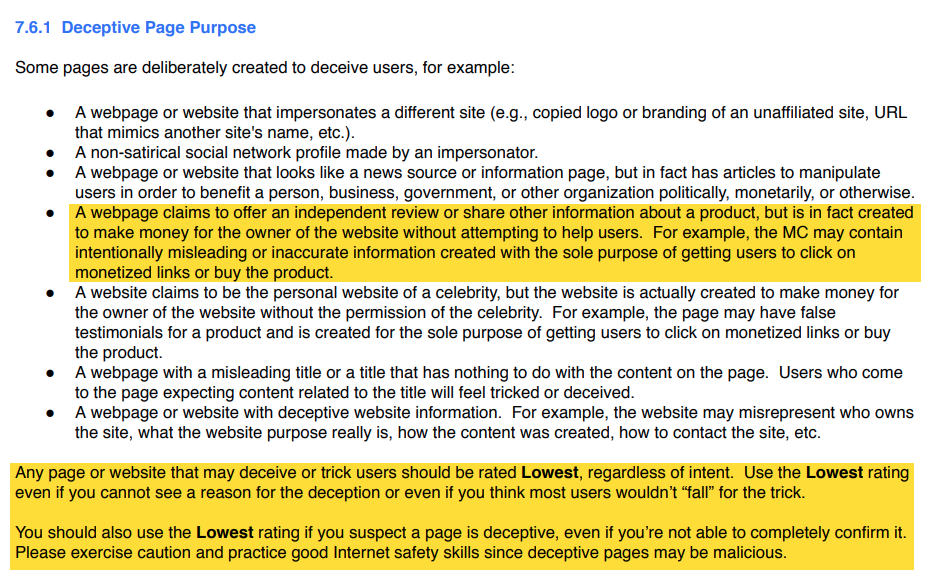
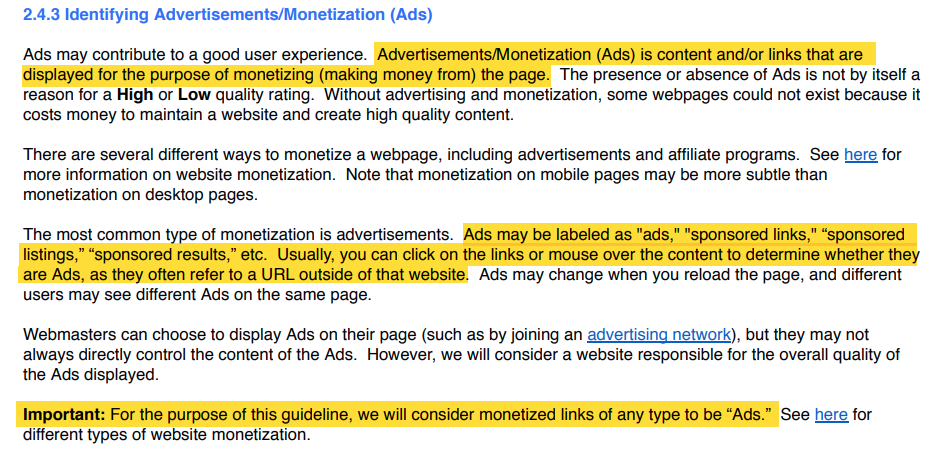
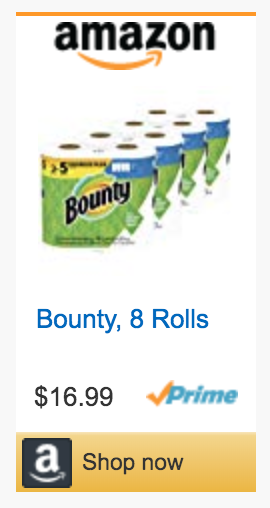





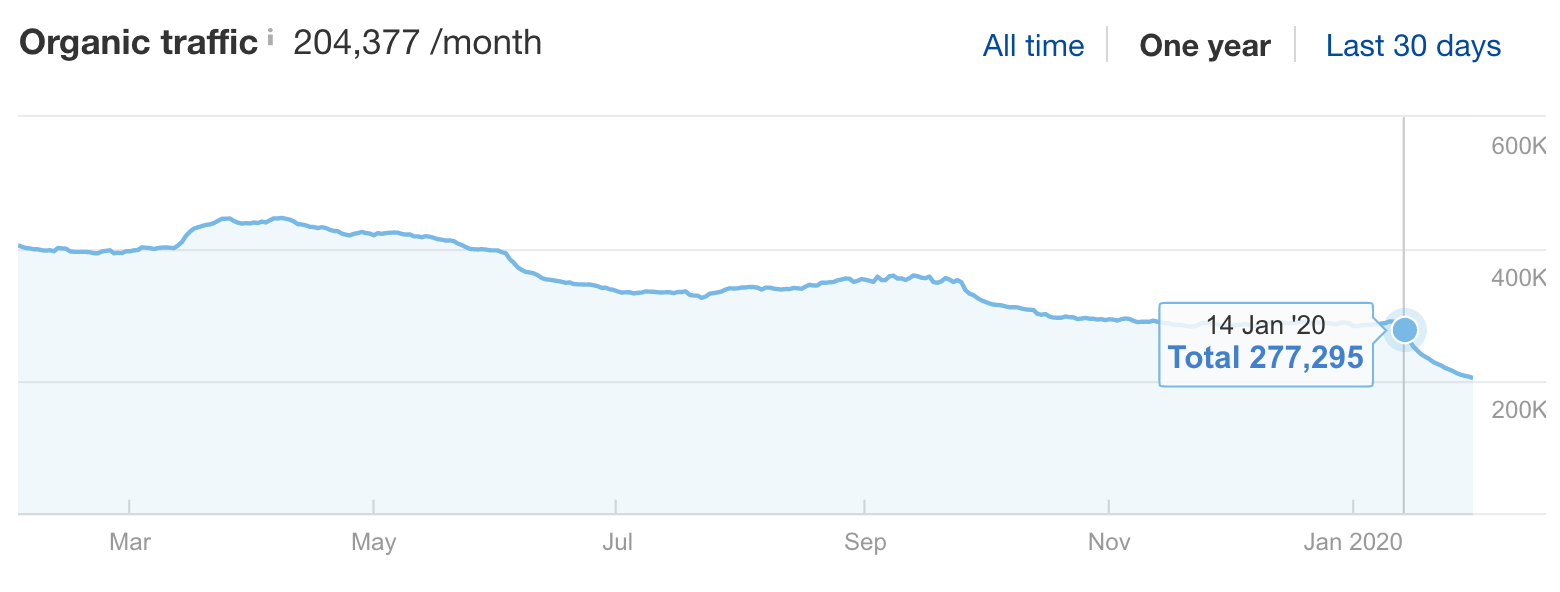
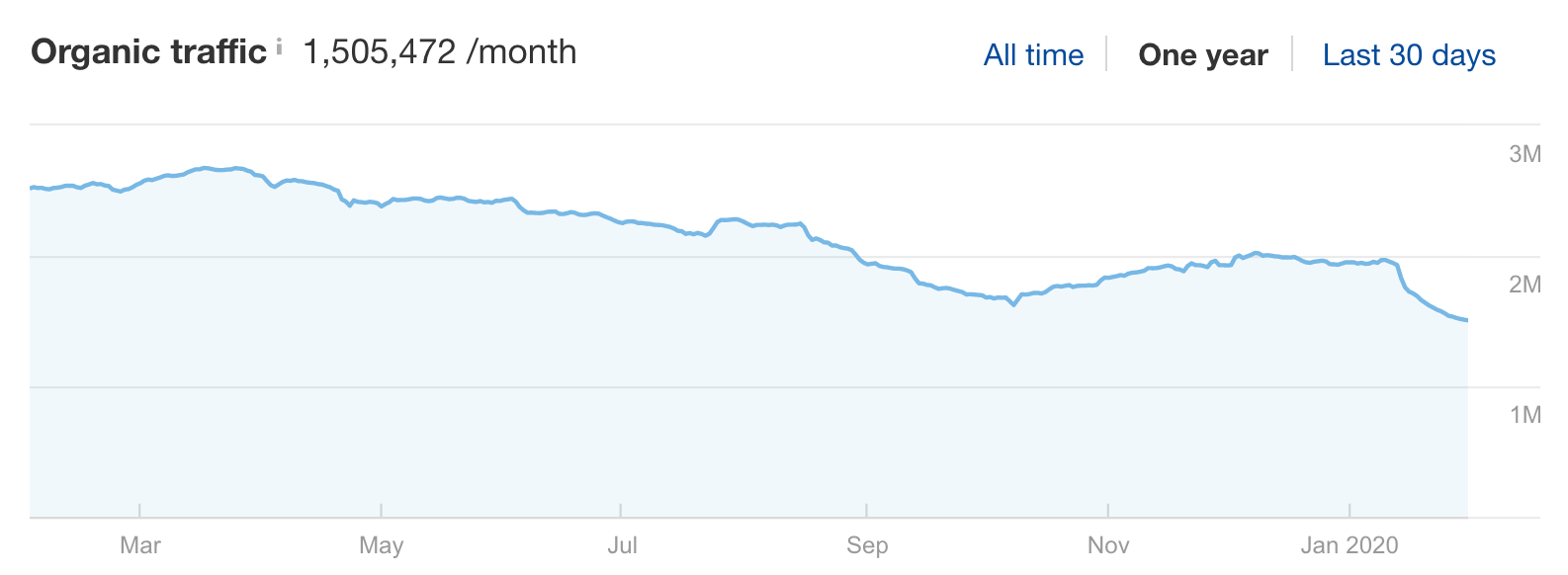
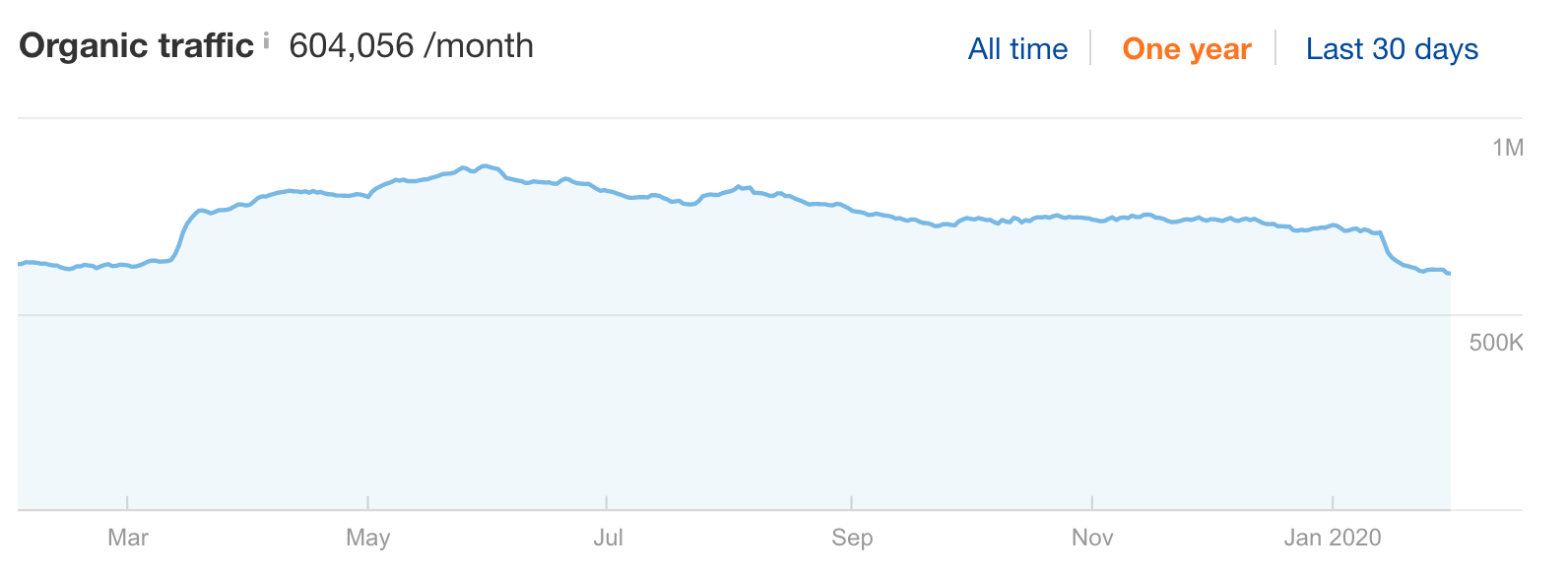
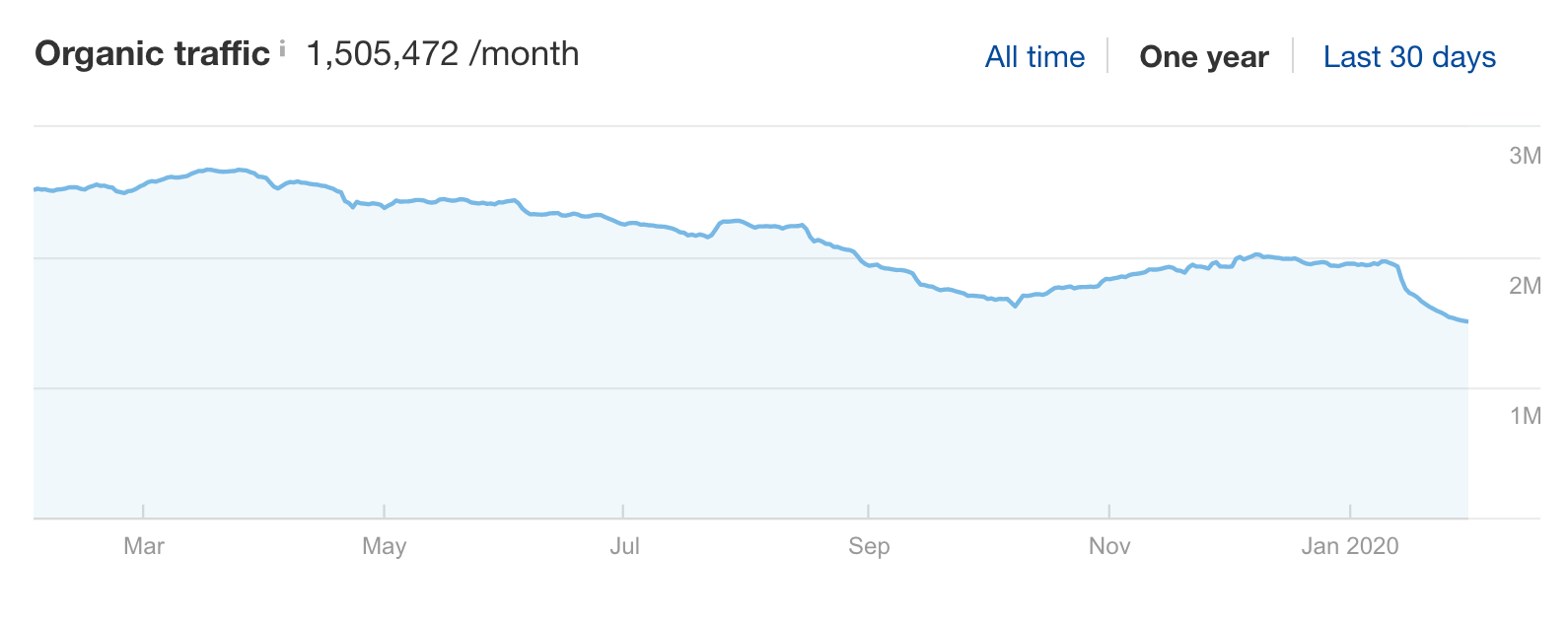
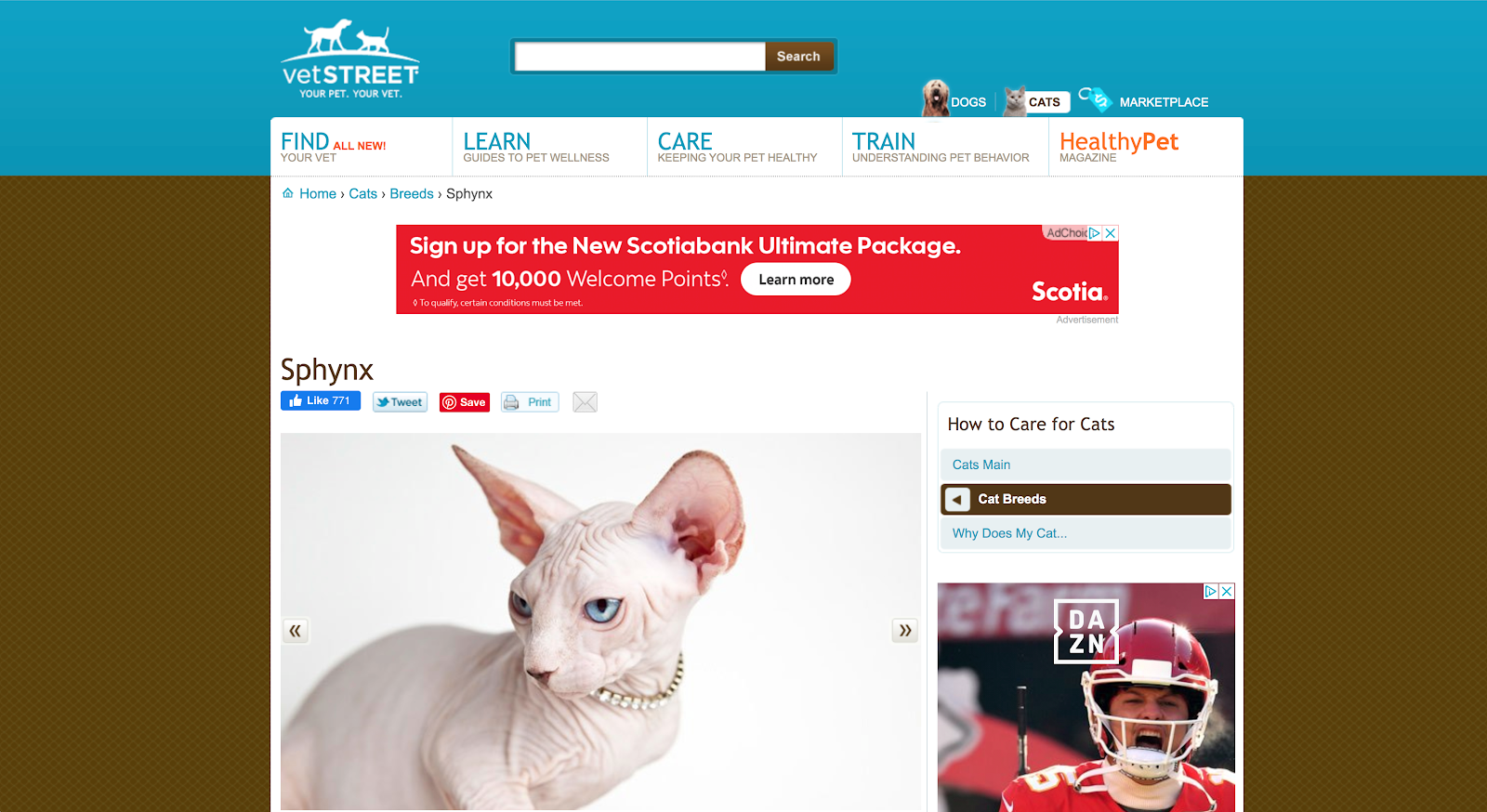
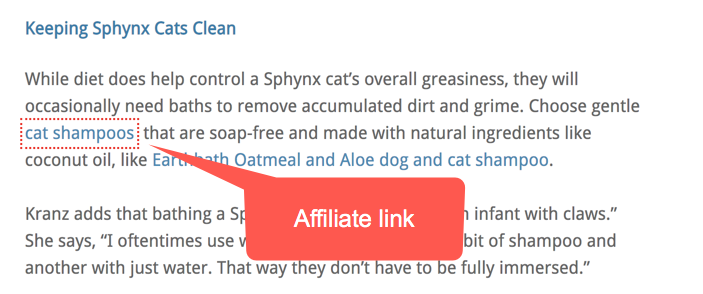

Comments
Hi, Marie. Thank you very much to you and your team for all this invaluable insight.
I’ve got a quick question and I’m hoping you could help me out on this.
Our site took a bit of a hit from the update, while our traffic was growing, and lost 30-40% of traffic.
We have a review site – the top products sort of thing.
– The affiliate disclosure is at the top, above the fold, before any affiliate links
– The affiliate links we have are:
+ when we have a table, with buttons clearly indicating they go to the merchant’s page
+ [!] in the same table, the product name also links to the merchant page, but we didn’t indicate that they go to the merchant page, since they are in the same row as the button, and in very close proximity to it
+ the images, which have a button under them, that specifies that the links go to the merchant page
+ [!] the headlines, which don’t specify that they go to the merchant page, because they are in very close proximity to the image and button that specifies the merchant page
Regarding where I marked [!], do you think those links might be the issue? I figured it’s quite clear that they lead to the merchant page, but maybe that’s just me.
Thanks again. I love your blog!
Hi Vlad. Sorry to hear your traffic dropped with this update.
It’s hard to answer these questions specifically without spending some time investigating. Generally though, if you have links that go to a merchant page, but users are thinking they are internal links, I’d want to make it much more clear that the links are monetized links.
Really good review – as usual!
You forgot to mention the most important aspect of this update – Google blurred the difference between ads and content in its results page 🙂
Great news if you hold Alphabet shares.
Great write up as always Marie.
I would love to read you do a detailed analysis on if google is applying stricter standards to pet health content!
Thanks Glenn. This is definitely something I’d like to look into. Are you seeing drops in a pet health site?
Thanks for this write up, Marie. I thought the point on clearly disclosing affiliate links was interesting. In your opinion, assuming the normal pre-content disclosures are clearly visible, if the anchor text of an affiliate link is simply the name of a brand or app, do you think that implies to the reader that if they click, they will be leaving the site to visit the brand page?
For example:
“By opening an account with [INSERT BRAND NAME], you can do blah blah blah”
And [INSERT BRAND NAME] is an affiliate link
Hi Jeff,
I’ve just added some information to the article about this. The Advertising Standards Authority has a whole article on affiliate disclosures and says that it is not usually considered sufficient to have a disclosure at the top or bottom of a post.
In regards to having a link anchored with a brand name, it may be worthwhile to ask some people who are not intimately connected to your website to navigate your site and then ask them what they thought they were clicking on with those links.
Do you have any data or statistics to back up any claim you made above?
How do you quantify the vagusim of “EAT” in a scientific manner? (without doing so, of course, it’s like asking how many angels can dance on the head of a pin – ie: a non-scientific / knowable / askable / and not worth listening too, question)
I’ll understand if you don;t have the courage to post this question for which i am sure you have no good answer 🙂
I did debate on whether to publish this comment due to it’s confrontational tone. In the past, when Josh has asked for me to give proof for something, I did and then he publicly tweeted my proof which ended up exposing confidential client data. Past conversations with him have ended in non-constructive arguments – to the point where other people wrote articles about how ridiculous the arguments were. I have no desire to argue with him, and will not be publishing any replies to this comment, but will give a few thoughts for the benefit of others who have a similar question.
In regards to whether E-A-T is truly something that is measured and valued by Google, this article we wrote can answer some of those questions:
https://www.mariehaynes.com/e-a-t-ranking-factor/
E-A-T in itself is indeed a vague concept, but Google has done a really good job, in my opinion, of describing many aspects of E-A-T in the Quality Raters’ Guidelines. In the article linked above, we show a few tweets from Danny Sullivan in which he explains this. Gary Illyes has told us as well (as mentioned in the above article) that Google has multiple algorithms that conceptualize E-A-T. It’s essentially a collection of signals that many Google algorithms use. Some have criticized us at MHC for paying too much attention to the QRG, but in doing so we have helped a large number of sites to have better quality and many of them have seen nice improvements with Google updates.
In regards to this article you are reading now, do we have proof that demoted affiliate sites for not properly disclosing which links are monetized? No, but it’s not going to make your site lower quality if you make things more clear for users. Do we know for certain that Google got better at identifying truly good content via BERT? Again, no. As we stated in the post, “Much of the information that you have just read in this article is theory.”
If people demand that SEO articles are only published when there is absolute proof for every point made, what will happen is we will end up with an industry that is terrified to share anything for fear of being called out or made fun of. I would love for more people to publish theories and thoughts on what we can do to improve site quality and perform better in search. Let’s be careful not to discourage others from sharing as well.
Thanks for your thoughts on the update Marie. It looks like vetsreet.com did recover at the start of this month.
This has been the most important article I have read on Google updates this year.
I do have a general feeling though that recently whenever I have done a Google search to find some information, I am getting less relevant answers, Google completely misunderstanding my query.
Here is an example search:
“Facebook pixel to target blog categories”
The answers are completely unrelated to my question.
I do feel that this will get much better over the next few years. If Google truly is getting better at understanding content and queries, this is likely because of the use of BERT. BERT is still quite new and it doesn’t surprise me that Google’s understanding of some queries still fails.
Thank you, Marie, for this informative post, I think I need to put affiliate disclosure on each post before facing any ranking issue
It’s much more than that though! I’ve just added some information to the article about the ASA’s stance on affiliate content. They state that it is likely not enough to just have a disclosure on the page. Users have to be really clear that they are clicking on a monetized link.
Thanks for the update Marie about the ASA’s opinion on affiliate content. It does make sense for links to be clearly marked as ads if they are affiliate links.
Hi Marie, I shared a link on website column. I have a question when we share the link as a testimonial about the site.
“Like hey, you can get information about our site. Many companies are talking about us and you can find them by clicking on this image.”
Google will count them those as an Affiliate or normal URL?
Should we use those links as “nofollow” tag?
you can find those images on “As seen in” section.
That doesn’t sound like sponsored content. I’d have to see it to be more certain, but most likely these would just be normal outbound links.
I have an 18 year old site which is seeing nice results, it’s hard to pinpoint why exactly as I’ve had a few dramas changing domain recently. I have the featured snippet for at least two breed profiles now where I wasn’t even on the first page before. All of my top ranking articles which had dropped after the move are now in no 1 or 2 position.
I have said it before and I will say it again, I have never built links. I brought a vet on board about 8 months ago to start proofreading (not all content, but he is working on it), and label it as such. Only use Adsense and no affiliate links. When I am quoting or using facts or stats, I always link to authorative sites/research papers. When I am speculating on something and have no research to back it up, I will say so. I hope that G is now recognising that I take my content seriously.
Thanks for sharing. It sounds like you are doing some really good things to improve the quality of your site.
In twitter chat, Google said
Some have asked if we had an update to Google Search last week. We did, actually several updates, just as we have several updates in any given week on a regular basis. In this thread, a reminder of when and why we give specific guidance about particular updates….
So, no idea what is going on.
Yes, Danny has said a few times that Google does updates regularly, often several times per day. He also said though that some updates are larger than others. It’s nice that Google tells us when they’re releasing a core update these days. But there are certain other unannounced updates that are still in my opinion, significant. An example would be the November 8 update.
I have one posting i posted couple weeks ago, its never get indexed. I try everything, optimize content and links. Never this hard before, and then today i posted on medium, and it get indexed in medium instantly. So Google indexed my content on medium but not from original content from my website 🙁
Hi Marie,
Thanks for sharing your thoughts. Our site is mostly ad-driven with only a few pages containing affiliate links, and we may have a number of affiliate links (8-10) on a single page. Do you have any thoughts on how we would practically label each affiliate link if they are scattered throughout the article please? We recommend different variations of the same widget and repetitive elaborate disclaimers (8-10 times). We are not opposed to being transparent but don’t want to spoil the authoritative flow of the article too with many disclaimers. Dare I say that too many disclaimers would make the article sound more spammy vs. add user value.
Thanks for your thoughts.
I re-read the ASA’s post on affiliate sites (https://www.asa.org.uk/advice-online/affiliate-marketing.html). They do actually say that a disclaimer at the start of your article may be sufficient. “…stating clearly at the beginning of the content that asterisks or other equivalent identifiers set out in the article relate to ‘advertising’ (and/or that they indicate that the author receives a small share of sales through the related link(s)) would also be acceptable. ” So, you could have a line at the beginning of your article saying, “Some of the links in this article, marked in red (or marked with an asterisk) are affiliate links which means that if you click on them and purchase, a percentage of the sale will go to us.”
Hi Marie,
Thanks for this update
I have written 9,000+ words articles for my website. One of my 4,000 words article is running on First Page of Google Ranking but the 9,000 words article is jumping from 2nd page to 4th page then jumping back to 2nd page and also I’m editing and adding on the 9,000 words article too. Is this up & down jump happening because of too much words or too much editing??
Thanks once again for this informative article
There are so many factors that could go into play here so this question is not really possible to answer. First, it can be normal for some content to rank well and other content to just struggle.
If one article is newer, it can take time for it to rank. You’d also want to consider the strength of the competition that you are up against. Also, certain topics are more likely to be held to strict standards in terms of E-A-T than others.
Hello Madam,
I want to ask you that if I write an article of 2000 words and write my post according to the SEO, can my article be ranked without backlink
Is it the best article of its kind? Does your website have E-A-T? Would readers say, “Wow, this is a really great article with information I can’t find elsewhere!” If so, then yes. Word count shouldn’t really matter though.